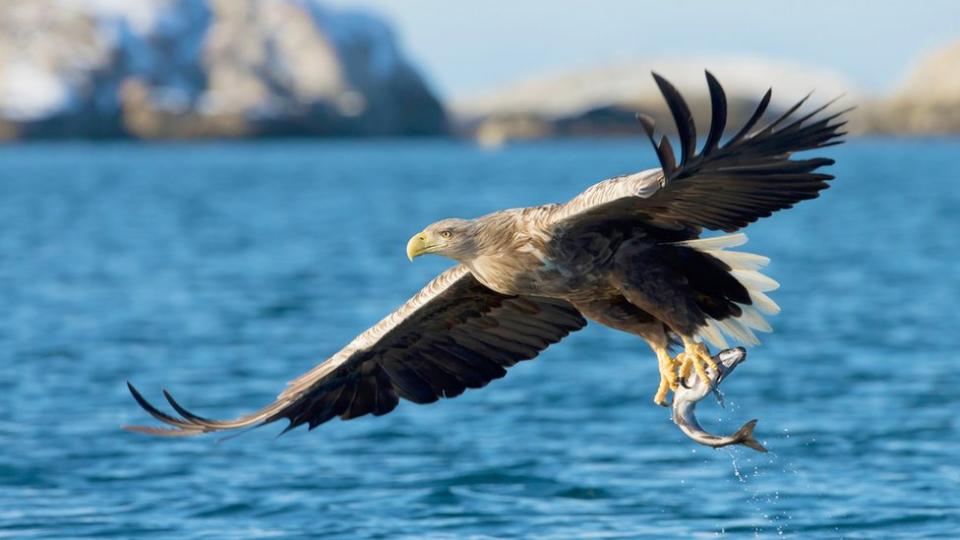Isle of Wight sea eagles have not attacked livestock, study finds
White-tailed eagles that were released into the wild in southern England have not attacked livestock, a study has found.
The UK's largest bird of prey - also known as the sea eagle - was reintroduced to the Isle of Wight in 2019, more than two centuries after the species became extinct in England.
Farmers on the island previously said they feared for the safety of lambs.
However, Forestry England said its study showed no such predation.

In Scotland, where the birds are more numerous, lamb remains have been found in sea eagles' nests.
Stephen Egerton-Read from Forestry England said no lambs or similar creatures had been taken by the Isle of Wight eagles.
He said: "There has not been any actual conflict [with farming]. There's just been a perception conflict might happen."
Twenty-nine sea eagles have so far been released on the island by Forestry England and the Roy Dennis Wildlife Foundation, as part of a conservation project.
Sixteen remain alive, including a chick born in southern England in 2023.
The study analysed GPS data and sightings of the eagles, which have roamed as far as Scotland and continental Europe.
Researchers found their prey included rabbits, grey mullet and cuttlefish.
The eagles supplemented their diet with carrion and by stealing catches from smaller birds of prey, the team said.
Mr Egerton-Read said: "All the way through those early days of the project, the biggest concern surrounding white-tailed eagles from any party, be they from farming background, gamebird background, fishing background or a conservation background, will be what the birds eat.
"This diet data we have is really useful in terms of helping provide... reassurance."
Follow BBC South on Facebook, X, or Instagram. Send your story ideas to south.newsonline@bbc.co.uk or via WhatsApp on 0808 100 2240.

